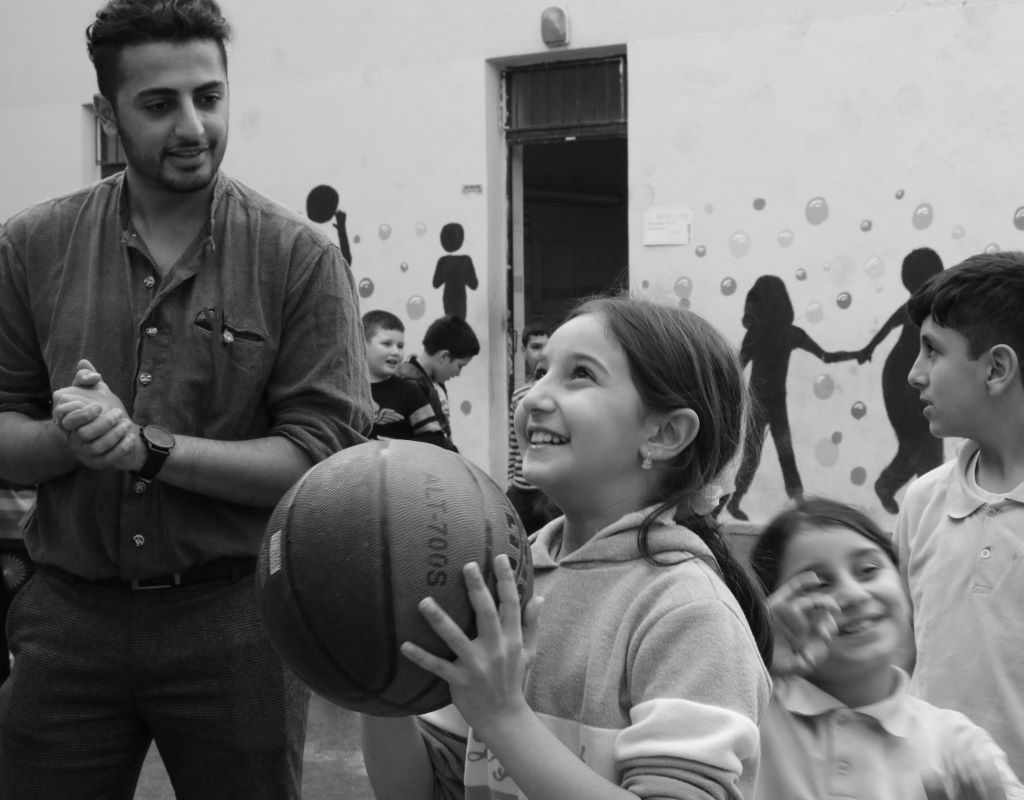As parents, we want to have the peace of mind that we’re raising kids who are well-behaved, polite, and respectful to others. Respect is often defined as having consideration of another person’s feelings, wishes, rights, or traditions. At the same time, the respect definition for kids often relates to the following:
- Playing fair
- Taking turns
- Saying “I’m sorry” when necessary
- Sharing
When you think about it, this abstract concept can be taught through the course of everyday life. So, we have some tips for teaching kids respect through modeling and communication.
Be the role model when teaching kids respect
As you might have noticed, young children pick up on everything in their world. They closely watch your interactions with others and from there, often start imitating you. Plus, your manner of communication with them impacts the foundation of their behavior.
Consequently, modeling respectful communication is the first steppingstone toward teaching your children this quality. When you set a solid example of respectful interactions with others—at home and beyond—they will pick up on your actions and in turn, apply that to their relationships.

Teach how to take turns
Another valuable lesson relates to taking turns. Whether your child is sharing a favorite toy or carrying on a conversation, allowing the other person to participate is a valuable life skill.
In the situation of waiting in line at the slide, your child will learn about patience and might even start engaging other children in conversation in the meantime. And speaking of conversation, by taking turns, they practice active, mindful listening.
Talk about respect at home
Likewise, your children will tell you about their day in daycare or in school as they get older. Often, these stories involve their interactions with other children that present teachable moments. This is a great opportunity to talk about respect and to ask guiding questions of your own.
For example, you can inquire why a class activity goes more smoothly when everyone raises their hand instead of blurting out. Or why games are quite fun when participants wait for their turn.
On the other hand, if your children wish to discuss a situation at school where respect was lacking, you can ask them what could have been done differently. Also, you might consider touching on the topic of constructive conflict resolution which encompasses taking turns to talk, keeping calm, and listening with an open mind.
Teach appropriate responses and requests
In addition to different scenarios where positive interactions come into play, you can teach your children the value of making requests in a respectful manner and responding appropriately to adults.
One common example relates to the situation when you’re on the phone or conversing in person with another adult, and your child needs to ask you something but doesn’t want to interrupt. You can model and teach your children to say “Excuse me, please” after patiently waiting for a pause in the conversation.
Ask Why
When the situation arises that your tots argue with each other or talk back to you, then one way to diffuse the tension is to ask them why they made that particular choice. And the best way to approach this is to ask in a calm, cool manner and to follow up with “were you disappointed or frustrated?”
This questioning causes kids to stop and reflect on their words. When they acknowledge their own emotions, they can become better equipped to deal with them. That’s when (probably years from now) the reactive “I hate you!” turns to “When you said ‘x, y, and z,’ I felt angry because…” Then they’re on their way toward effective conflict resolution.

Reward good behavior
Another important aspect of teaching kids respect is to acknowledge when they have done the right thing. For instance, going back to the opportunities for discussing respect, you can compliment your children when they have resolved their conflicts by talking it out and reaching a compromise.
Also, you can catch them doing a good deed. For example, if you and your child are walking into a grocery store, and he or she steps aside to hold the door for an elderly person, you can whisper a “Great job!” to him or her.
Explaining the respect definition for kids and all the actions behind it can be difficult for such an abstract concept. Nevertheless, the most important thing to remember about teaching kids respect is to stay calm so they remember the lesson more than your outburst. Also, you might prepare yourself for having to apologize to them in the event you do lose your composure. When you model this behavior, you’re showing integrity while still emphasizing your authority and credibility. Over time, your children will pick up on these valuable life lessons which will prepare them well for their future relationships and work habits.



